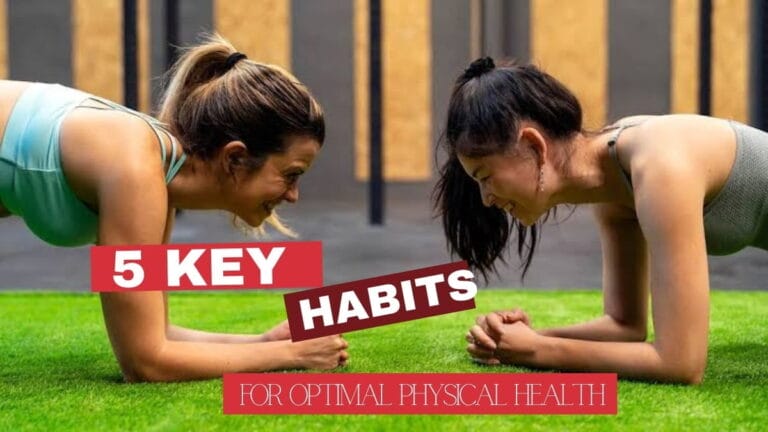Mastering Healthy Eating: Expert Tips for a Balanced Lifestyle

In today’s fast-paced world, maintaining a healthy diet can often be a challenging task. We’re constantly bombarded with tempting fast-food options, busy schedules, and a wealth of conflicting dietary advice. However, Mastering Healthy Eating: Expert Tips demonstrates that it is not an insurmountable feat.
By incorporating these expert recommendations and making informed choices, you can cultivate a balanced and sustainable approach to your nutrition. In this article, we’ll explore some key strategies and guidelines to help you on your journey to mastering healthy eating.
1. Prioritize Whole Foods
Whole foods, such as fruits, vegetables, whole grains, lean proteins, and healthy fats, should form the foundation of your diet. They are rich in essential nutrients, fiber, and antioxidants, promoting overall well-being. Try to fill your plate with a variety of colorful, unprocessed foods for a nutritional boost.
2. Portion Control
Healthy foods, when excessively consumed, can contribute to weight gain. It’s crucial to practice portion control. Be mindful of suggested serving sizes and contemplate using smaller plates to regulate portions. This practice aids in preventing overeating and supports the maintenance of a healthy weight.
3. Stay Hydrated
Proper hydration is often overlooked in the quest for healthy eating. Drinking enough water throughout the day is crucial for digestion, nutrient absorption, and overall health. Aim for at least 8 glasses of water daily, and adjust based on your activity level and climate.
4. Balanced Macronutrients
Mastering healthy eating means achieving a balanced intake of macronutrients – carbohydrates, proteins, and fats. Focus on complex carbohydrates, lean proteins, and healthy fats in your meals to provide sustained energy and satiety.
5. Mindful Eating
Practicing mindful eating entails complete presence at mealtime, relishing every morsel, and heeding your body’s signals of hunger and fullness. This approach can assist in preventing overeating and in making more nutritious food selections.
6. Meal Planning
Planning your meals in advance can prevent last-minute unhealthy choices. Design a weekly meal plan that includes a variety of nutritious foods and ingredients. This will also save you time and reduce food waste.
7. Limit Processed Foods
Processed foods frequently have elevated quantities of added sugars, unhealthy fats, and artificial additives. Reduce your intake of these products and choose whole, natural alternatives whenever they are available.
8. Seek Expert Advice
Don’t hesitate to consult with a registered dietitian or nutritionist for personalized guidance. They can help you create a tailored eating plan that suits your individual needs and goals.
9. Don’t Skip Meals
Missing meals may result in consuming excessive food later on. It’s important to have regular, well-balanced meals and incorporate healthy snacks as necessary to sustain steady energy levels.
10. Stay Informed
The world of nutrition is constantly evolving, so staying informed is crucial. Read reputable sources, keep up with the latest research, and be open to adjusting your dietary choices based on new findings.
11. Practice Moderation
Keep in mind that it’s perfectly fine to occasionally enjoy your favorite indulgences. The important thing is to practice moderation. Having small servings of less nutritious foods won’t throw off your efforts toward healthy eating.
12. Regular Exercise
Physical activity is an essential component of a healthy lifestyle. Incorporate regular exercise into your routine to support your dietary efforts and boost overall well-being.
In conclusion, “Mastering Healthy Eating: Expert Tips” is an essential step in adopting a holistic approach to nutrition that is sustainable and tailored to your needs. By diligently following these expert tips, you can develop a balanced and health-conscious relationship with food that will serve you well in the long run. Remember that making gradual changes and staying consistent in your efforts is key to success. A healthy diet is not a destination but a journey, and with the right guidance and mindset, you can make it an integral part of your daily life.
FAQs
What is the importance of mastering healthy eating?
Mastering healthy eating is crucial for maintaining overall well-being. It provides essential nutrients to your body, supports energy levels, helps in weight management, and reduces the risk of chronic diseases. A well-balanced diet can also enhance your mood, cognitive function, and physical performance.
How can I incorporate whole foods into my diet?
To include more whole foods in your diet, start by adding fruits and vegetables to your meals. Opt for whole grains like brown rice and quinoa instead of refined grains. Choose lean proteins such as chicken, fish, and legumes. Include healthy fats like avocados and nuts. Gradually replace processed foods with these whole, natural options to improve your eating habits.
What is mindful eating, and how can I practice it?
Practicing mindful eating entails staying completely present during meals, enjoying every bite, and being attuned to your body’s signals of hunger and satisfaction. To embrace this approach, remove distractions such as television or smartphones while eating. Take your time chewing your food, relishing the different flavors. Tune in to your body’s cues for hunger and fullness, and respond to these internal signals rather than external influences.



